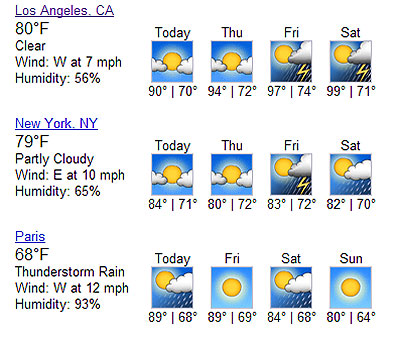Topic: Reality-Based Woes
But all day long the news was playing the clip of her saying that, unlike the UN and the Europeans and Russians and most everyone else, the United States will certainly not call for a ceasefire.
Our UN ambassador, John Bolton, had previously said such a thing was simple-minded and stupid - you cannot deal with a non-state terrorist organization as if it were a nation or anything. Who there has the authority to enter into a ceasefire agreement? Yeah, yeah, Hezbollah is part of the government of Lebanon, with seats in their parliament and a few cabinet ministries, but they aren't the official government, although, if you think about it, they might as well be. The nominal government is somewhere between feckless and useless, with a small army of seventy thousand, with maybe forty thousand deployable, with no modern equipment and no battlefield experience. Like they'll go stomp on Hezbollah, their fellow Shiites, for being so stupid and making so much trouble? Or they'll go up against Israel with its F-16's we sold them and the drones overhead and all the tanks and artillery? You actually might want to work with Hezbollah, as the only thing like a government there.
Rice's take on the matter was slightly different. Her position, and thus the position of the United States, is that there's no point in getting some sort of ceasefire agreement, as Hezbollah would just break it, and you need to break and humiliate Hezbollah, and disarm them, first. Then something can be worked out. Those weren't her exact words. But the idea is there should be no ceasefire that puts things back to where they were two weeks ago, or for the last ten years. The cease fire must be based on Hezbollah just going away. Hezbollah is not impressed. But then, we don't talk to them.
It's unclear who she will talk to when she drops in. There are the Israelis, the Saudis, and the Egyptians. When the Palestinians elected Hamas, in an election we insisted upon (that spreading democracy thing), we cut all communication with them and cut off all aid too. We don't deal with terrorists. That only makes them think they're legitimate. Similarly we don't speak with Hezbollah. We isolate terrorist organizations, and shun them, lest they think they're important and get all uppity. We long ago cut all diplomatic relations, and stopped all back-channel talks, with Syria and Iran, as they sponsor terrorism. So we punish them all by just ignoring them. That'll show them. Of course this means Rice could not help negotiate any ceasefire anyway. There are only the Israelis. That makes for a rather pointless conversation about terms and conditions. The Saudis and the Egyptians aren't even in the fight. The other players and their sponsors are probably saying, "What are we, chopped liver?" Well, probably not - too Jewish.
One commentator, Digby at Hullabaloo (becoming one of the most insightful writers on this madness), say this business always had "a certain kabuki element," explained this way -
But we don't do that any more. We're, as he notes, "letting Israel off the leash to do some real damage" before we "step in."In the past when these situations would flare up, Israel would take an aggressive action to demonstrate that it wasn't a pushover and the US would step in like a Dutch uncle and reluctantly pull the pissed off Israelis back. In a dangerous part of the world, these face-saving kabuki's can prevent things from hurtling out of control while allowing each side to stage a little bloodletting. It's an ugly, ugly business, but ultimately it has managed to help keep this volatile region from hurtling out of control. The "honest broker" thing may have always been phony, but sometimes a phony "honest broker" is all you need.
But why? Things could easily spin out of control, or more out of control. A regional war would be messy, and the disruption in the oil markets devastating. And we aren't exactly winning hearts and minds, and building consensus with other nations, by saying a ceasefire would be wrong right now. What's the deal?
The Washington Post ran an article where they seem to think they found out what the real deal is. The president thinks he's really smarter than everyone else on all this, and more farsighted.
The core of the Post investigation (emphases added) -
When hostilities have broken out in the past, the usual U.S. response has been an immediate and public bout of diplomacy aimed at a cease-fire, in the hopes of ensuring that the crisis would not escalate. This week, however, even in the face of growing international demands, the White House has studiously avoided any hint of impatience with Israel. While making it plain it wants civilian casualties limited, the administration is also content to see the Israelis inflict the maximum damage possible on Hezbollah.
As the president's position is described by White House officials, Bush associates and outside Middle East experts, Bush believes that the status quo - the presence in a sovereign country of a militant group with missiles capable of hitting a U.S. ally - is unacceptable.
The U.S. position also reflects Bush's deepening belief that Israel is central to the broader campaign against terrorists and represents a shift away from a more traditional view that the United States plays an "honest broker's" role in the Middle East.
In the administration's view, the new conflict is not just a crisis to be managed. It is also an opportunity to seriously degrade a big threat in the region, just as Bush believes he is doing in Iraq. Israel's crippling of Hezbollah, officials also hope, would complete the work of building a functioning democracy in Lebanon and send a strong message to the Syrian and Iranian backers of Hezbollah.
"The president believes that unless you address the root causes of the violence that has afflicted the Middle East, you cannot forge a lasting peace," said White House counselor Dan Bartlett. "He mourns the loss of every life. Yet out of this tragic development, he believes a moment of clarity has arrived."
One former senior administration official said Bush is only emboldened by the pressure from U.N. officials and European leaders to lead a call for a cease-fire. U.N. Secretary General Kofi Annan demanded yesterday that the fighting in Lebanon stop.
"He thinks he is playing in a longer-term game than the tacticians," said the former official, who spoke anonymously so he could discuss his views candidly. "The tacticians would say: 'Get an immediate cease-fire. Deal first with the humanitarian factors.' The president would say: 'You have an opportunity to really grind down Hezbollah. Let's take it, even if there are other serious consequences that will have to be managed.'"
Digby's comment - "They are now officially crazy."
No, the man simply believes things are going just fine in Iraq, where we have shown the terrorists and the religious nuts who's boss - we defanged them all. And Israel is doing the same thing in south Lebanon and Gaza. So you don't tamper with success. We're on a roll.
Yep, that's madness - all the facts are just wrong. This may be denial, a form of self-protection for the ego, or all the ambitious staffers making sure he hears what they know he wants to hear, or delusion. "Everyone else is wrong, and I'll show them." Maybe it's a personality thing - the insecure bully showing off. It doesn't really matter one way or the other. He's the decider, and the decisions have been made, including this one - "The official, speaking on condition of anonymity, said U.S. ideas for ending the Middle East conflict are still evolving but Washington does intend to contribute humanitarian aid to Lebanese people displaced by fighting between Israel and the militant Islamic group Hezbollah."
We're on a roll. Why bother?
Some foreign policy, but maybe it's not Bush. Digby thinks it's all Cheney - "I won't bother with Junior - he's a foreign policy ventriloquist dummy."
And Dick is mad as a hatter. The pointer is to Frances Fitzgerald in the New York Review of Books here -
So we get this conclusion from Digby -In "A World Transformed," the memoir that he and Bush senior published in 1998, [Brent] Scowcroft makes it clear that while all Bush senior's top advisers had different perspectives, the fundamental division lay between Defense Secretary Richard Cheney and everyone else. By his account, and by those of others in the administration, Cheney never trusted Gorbachev. In 1989 Cheney maintained that Gorbachev's reforms were largely cosmetic and that, rather than engage with the Soviet leader, the US should stand firm and keep up cold war pressures.
In September 1991 Cheney argued that the administration should take measures to speed the breakup of the Soviet Union - even at the risk of encouraging violence and incurring long-term Russian hostility. He opposed the idea, which originated with the chairman of the Joint Chiefs, Colin Powell, that the US should withdraw its tactical nuclear weapons from Europe and South Korea. As a part of the preparations for the Gulf War he asked Powell for a study on how small nuclear weapons might be used against Iraqi troops in the desert.
Maybe so, but he's not the only enabler here.This is the person who is playing a longer game than the tacticians, not Little Bushie. And he is playing a long game. His shark-like, relentless, predatory concentration on achieving long held goals no matter what the current circumstances is quite awesome to behold. The problem is that he's nuts.
There's the new Director of National Intelligence, John Negroponte - the man who administered our death squads in Nicaragua and such, later our ambassador to the UN, and then to the new Iraq. It seems he likes to keep the boss happy, and we see here that he has told the CIA not to do any National Intelligence Estimates any longer. There's too much risk things will be leaked, and the last one, in 2004, was "too negative." When that got leaked the president had to say publicly it was just opinion, and he wasn't paying much attention to it. It's supposed to be the best assessment at the world situation and what could be a bother soon.
Yeah and a new one might be a bit uncomfortable, as things get real nasty in Iraq -
What is there to say? Is it best he doesn't know? Tell him things are going fine, and the media is filled with people what hate him (except for Fox News) and are lying, and who hate America. Let him work with that and things will be fine."What do you call the situation in Iraq right now?" asked one person familiar with the situation. "The analysts know that it's a civil war, but there's a feeling at the top that [using that term] will complicate matters." Negroponte, said another source regarding the potential impact of a pessimistic assessment, "doesn't want the president to have to deal with that."
Whether the leader of the free world should be protected from bad news, so he can retain his optimism and strong convictions, is an interesting question. When a leader is misinformed does he make better decisions? That is both an interesting management theory and model for government.
And the upcoming meeting where Prime Minister Nuri al-Maliki of Iraq meeting with the president in the Whit House could be more than awkward, as everyone seems to be pointing to what Reuters reports here -
Nuri al-Maliki will tell him things are fine. You don't upset the boss. If Iraq as a political project is finished, the he'll deal with that later, "if there are other serious consequences that will have to be managed."Iraqi leaders have all but given up on holding the country together and, just two months after forming a national unity government, talk in private of "black days" of civil war ahead.
Signaling a dramatic abandonment of the U.S.-backed project for Iraq, there is even talk among them of pre-empting the worst bloodshed by agreeing to an east-west division of Baghdad into Shi'ite and Sunni Muslim zones, senior officials told Reuters.
Tens of thousands have already fled homes on either side.
"Iraq as a political project is finished," one senior government official said - anonymously because the coalition under Prime Minister Nuri al-Maliki remains committed in public to the U.S.-sponsored constitution that preserves Iraq's unity.
One highly placed source even spoke of busying himself on government projects, despite a sense of their futility, only as a way to fight his growing depression over his nation's future.
"The parties have moved to Plan B," the senior official said, saying Sunni, ethnic Kurdish and majority Shi'ite blocs were looking at ways to divide power and resources and to solve the conundrum of Baghdad's mixed population of seven million.
"There is serious talk of Baghdad being divided into east and west," he said. "We are extremely worried."
On the eve of the first meeting of a National Reconciliation Commission and before Maliki meets President George W. Bush in Washington next week, other senior politicians also said they were close to giving up on hopes of preserving the 80-year-old, multi-ethnic, religiously mixed state in its present form.
"The situation is terrifying and black," said Rida Jawad al -Takki, a senior member of parliament from Maliki's dominant Shi'ite Alliance bloc, and one of the few officials from all the main factions willing to speak publicly on the issue.
"We have received information of a plan to divide Baghdad. The government is incapable of solving the situation," he said.
As sectarian violence has mounted to claim perhaps 100 lives a day and tens of thousands flee their homes, a senior official from the once dominant Sunni minority concurred: "Everyone knows the situation is very bad," he said. "I'm not optimistic."
And who needs another comprehensive National Intelligence Estimate from the CIA? Other presidents, even his father, would have demanded one - just to know what we're dealing with. This one knows in his gut knows how things are, just as he looked into Vladimir Putin's eyes and saw his good soul, and dismisses all the negative stuff that messes up your head. Cool. And scary.
But people seem to love this approach. After a long discussion of Vice President Cheney telling a campaign crowd, Friday, July 21, that everything we do shows the administration is serious about keeping us safe, and making the right assessments of threats, and the right decisions - and saying the fall elections should be about how right and strong the Republicans are, and the only issue should be "national security" - this Digby fellow says this -
No one is. There's always something compelling about the strong-willed fellow who says what you see is not actually what you see at all, and the world is not at all what is seems, but much better - so get rid of those negative thoughts and ignore the so-called reality. It'll only bring you down. There's another reality.... remember, the Republicans are counting on thirty years of rightwing propaganda to get them over the line again. They expect that many voters will simply fall back into their comfortable understanding of the two parties: the Republicans are tough men who can handle national security and the Democrats are sensitive women who will help you when you need help (if you're a pathetic loser who actually needs help that is.) The Fighters and the Lovers. This is the paradigm under which we've lived for many years and people find it very disconcerting to be asked to relinquish such reflexive internalized beliefs - no matter what they see before them.
I do not know that they can pull it off one more time. We may have finally reached a tipping point. But I'm not counting any chickens.
That sort of things sells a whole lot of self-help books, and gizmos on the infomercials, and diet-plans. Americans eat it up. We're an optimistic people. And "life is not what is seems" packs the Contemporary Christian churches and drives the forces saying science - Darwin and all that global warming stuff - is just facts, not reality. We're not skinny, bitter, sissy Frenchmen sitting in some left bank café or bistro, smoking odd cigarettes and sipping bad coffee, thinking about reality and what is coherent and valid. This is the new world. That coherent and valid stuff is for losers.
And that may work in November, one more time. War will be perpetual. How else do you make things better?
Posted by Alan at 23:01 PDT
|
Post Comment |
Permalink
Updated: Friday, 21 July 2006 23:04 PDT
home





